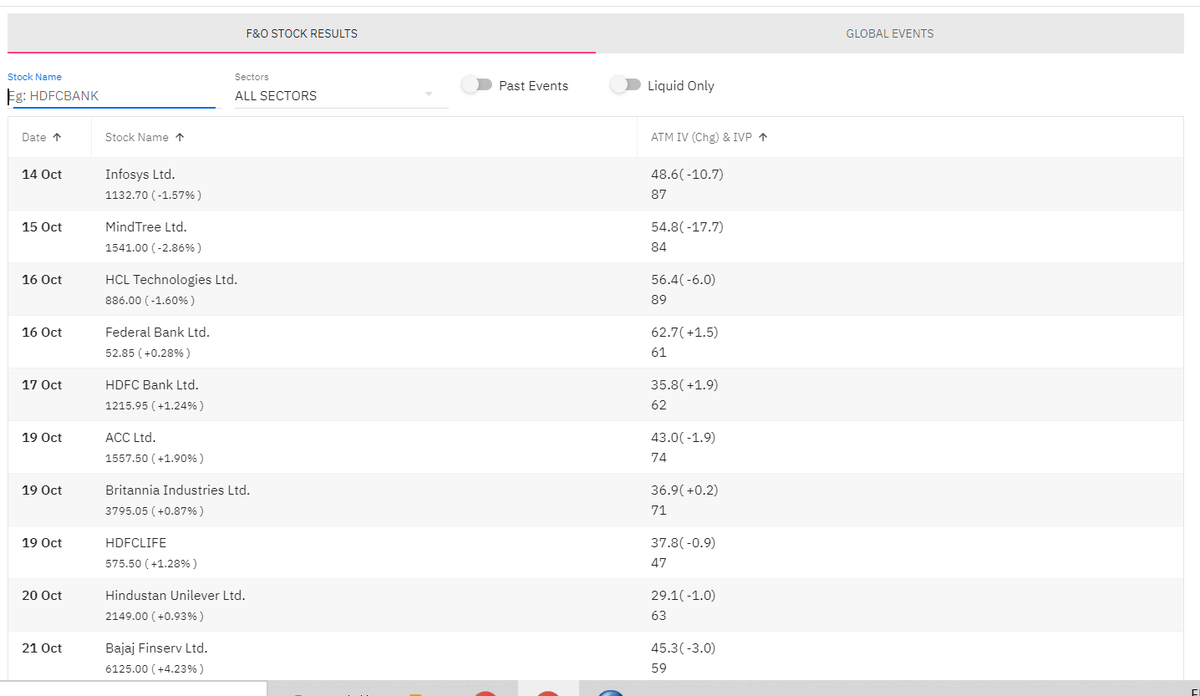One of the favourite case studies that come up in my BFBV course at MDI is Relaxo. Every year I ask students to study this case which I had done along with @ravirpurohit in 2013 by assigning these
More from Trading
Thread on Short straddle with adjustments:
Short straddle is non-directional strategy
Selling same strike price CALL/PUT option same underlying with same expiry.
Nifty Spot at 14353, So you can sell 14350 CE as well 14350 PE of 14 Jan. Expiry.
(1/n)
*RETWEET for max response
Bullish short straddle: Selling 14400 CE and 14400 PE of same expiry.
Bearish short straddle: Selling 14250 CE and 14250 PE of same expiry.
You can sell straddle as per your market view.
If you are natural view sell CE and PE at ATM strike.
(2/n)
Short straddle has limited profit potential (only premium) and unlimited risk without adjustment.
In Example, Short straddle of 14350, Breakeven is (14131.0-14569.0), need 1.7Lac Margin to sell straddle.
Maximum profit: 16k and Loss: Unlimited, Winning probability: 50%
(3/n)

If market staying near at 14350 then win. Probability increase slowly. Rewards also increase slowly.
Volatility(IV) is also play important role in selling straddle, Like If IV increase so straddle premium increase and IV cool off so premium casually comes down.
(4/n)
Short straddle adjustment:
https://t.co/59Lr64kEtK way to limit the overnight risk.
Convert short straddle in Ironfly, its nothing we have to add long strangle in short straddle it become Ironfly. It gives the good Risk Rewards.
(5/n)

Short straddle is non-directional strategy
Selling same strike price CALL/PUT option same underlying with same expiry.
Nifty Spot at 14353, So you can sell 14350 CE as well 14350 PE of 14 Jan. Expiry.
(1/n)
*RETWEET for max response
Bullish short straddle: Selling 14400 CE and 14400 PE of same expiry.
Bearish short straddle: Selling 14250 CE and 14250 PE of same expiry.
You can sell straddle as per your market view.
If you are natural view sell CE and PE at ATM strike.
(2/n)
Short straddle has limited profit potential (only premium) and unlimited risk without adjustment.
In Example, Short straddle of 14350, Breakeven is (14131.0-14569.0), need 1.7Lac Margin to sell straddle.
Maximum profit: 16k and Loss: Unlimited, Winning probability: 50%
(3/n)

If market staying near at 14350 then win. Probability increase slowly. Rewards also increase slowly.
Volatility(IV) is also play important role in selling straddle, Like If IV increase so straddle premium increase and IV cool off so premium casually comes down.
(4/n)
Short straddle adjustment:
https://t.co/59Lr64kEtK way to limit the overnight risk.
Convert short straddle in Ironfly, its nothing we have to add long strangle in short straddle it become Ironfly. It gives the good Risk Rewards.
(5/n)

Option Trading is very difficult to master as there are so many things to understand.
Here is a master thread related that will help a beginner to understand about Options Trading.
A complete course worth Rs 50K for free.
1/ A detailed thread on basics of Option Greeks and how it impacts Options
2/ Basic Option Trading Strategies:
There are many option strategies to trade. But keeping your strategy simple is the key.
In this thread, all the basic option trading strategies are being
3/ What are the things that you should look at before taking any Option
4/ Is Option Selling Possible with Rs 1 Lakh Capital?
Even a beginner can start trading in option selling with capital as low as Rs 1 Lakh.
What are the techniques one can use and how to mitigate the infinite loss risk is shared in this
Here is a master thread related that will help a beginner to understand about Options Trading.
A complete course worth Rs 50K for free.
1/ A detailed thread on basics of Option Greeks and how it impacts Options
There are various Options Greeks like: Delta, Gamma, Vega, Rho, Theta.
— Yash Mehta (@YMehta_) September 4, 2022
A complete guide on how these #Option Greeks impact option price.
2/ Basic Option Trading Strategies:
There are many option strategies to trade. But keeping your strategy simple is the key.
In this thread, all the basic option trading strategies are being
Option trading is tough but here\u2019s what can make it easier for you
— The Chartians (@chartians) September 17, 2022
8 option strategies that you can use in any market (sold as a \u20b9 50,000 course !)
3/ What are the things that you should look at before taking any Option
They say options trading can make YOU BANKRUPT - is it true ?
— The Chartians (@chartians) September 23, 2022
If yes then why ?
A thread on Risk management and Position sizing in options trading (worth 50k\u20b9 course)\U0001f9f5
4/ Is Option Selling Possible with Rs 1 Lakh Capital?
Even a beginner can start trading in option selling with capital as low as Rs 1 Lakh.
What are the techniques one can use and how to mitigate the infinite loss risk is shared in this
101 guide on how you can start option selling to generate active returns with less capital (Rs 1 Lakh) \U0001f9f5:
— Yash Mehta (@YMehta_) August 19, 2022
A course on option selling available for free.






















